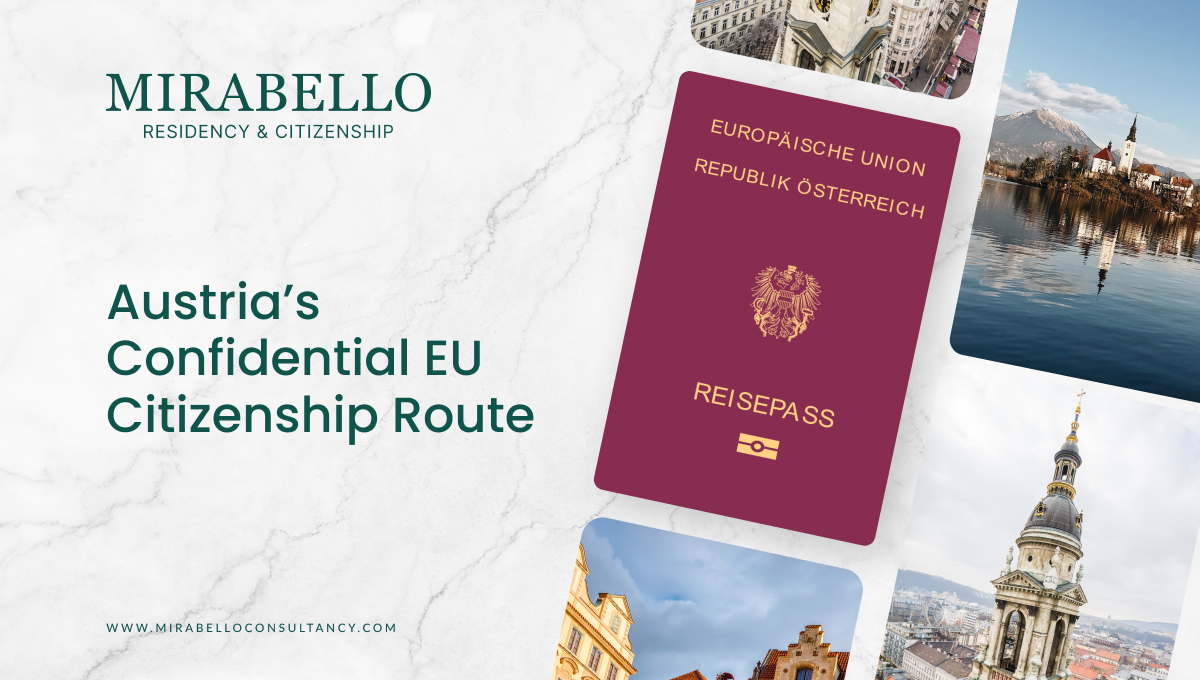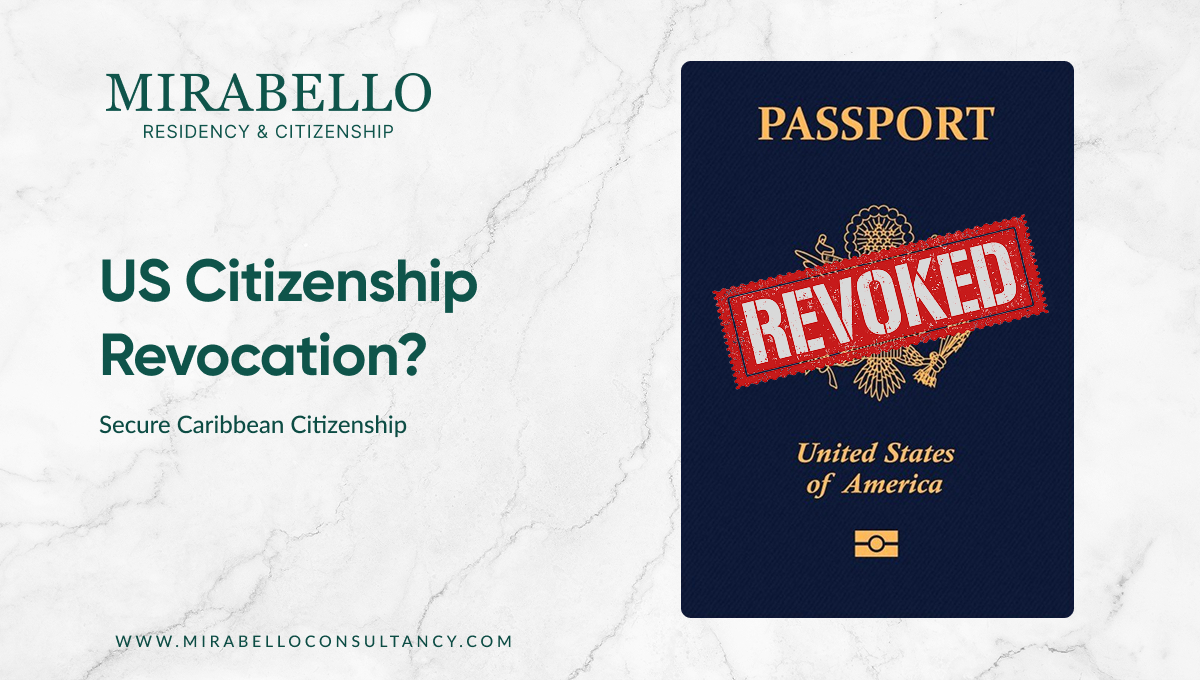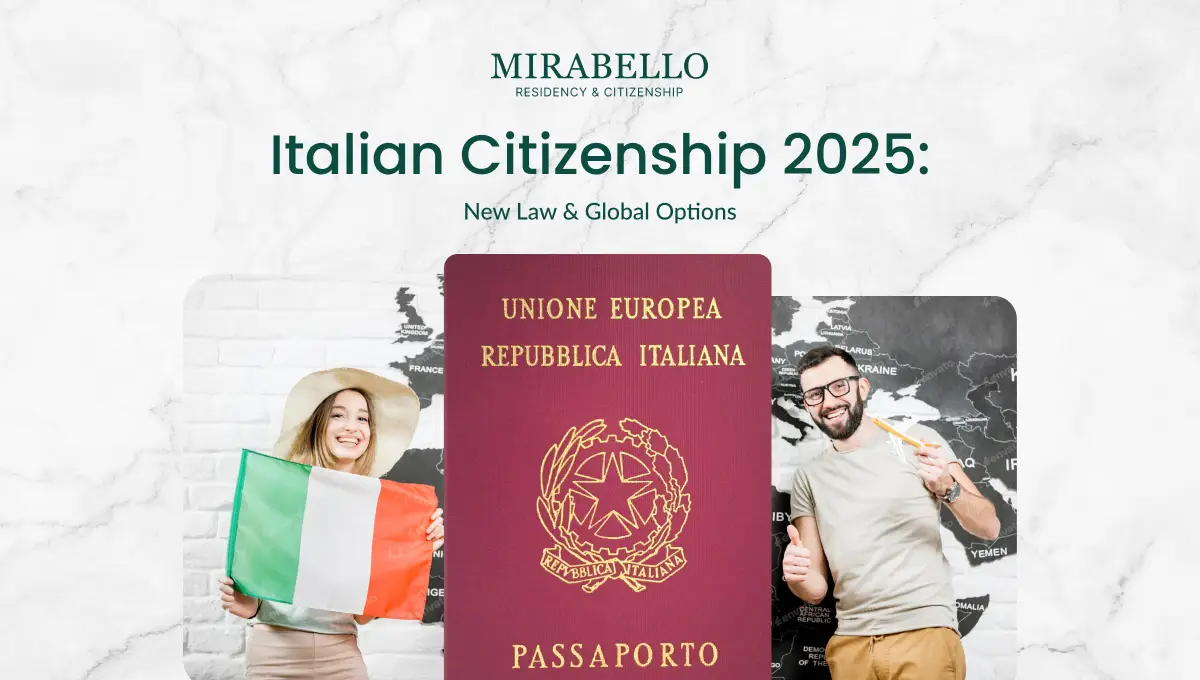
Humanity’s dream of becoming a multi-planetary species is still a long way off—about 225 million kilometers to Mars, give or take. But while interplanetary passports aren’t an option yet, collecting dual, triple, or even multiple citizenships right here on Earth is far more achievable.
So, how many citizenships can you have? The answer depends on where you’re born, your ancestry, and the laws of different nations. Some countries welcome multiple nationalities without restriction, while others make you choose just one.
In an increasingly globalized world, holding more than one passport isn’t just a novelty—it’s a strategic advantage. Whether it’s for travel freedom, business opportunities, or a plan B in times of uncertainty, multiple citizenships can open doors (and borders) in ways a single nationality simply can’t.
This article will explore the possibilities, the perks, and the paths to acquiring multiple citizenships—because while Mars may be out of reach, expanding your global footprint is entirely within grasp.
- How many citizenships can you have? The answer depends on the laws of each country, but it is possible to hold citizenship in more than two nations. Some countries embrace multiple nationalities, while others impose restrictions or even require renunciation.
- Holding multiple passports can unlock a world of advantages, including greater global mobility, expanded educational and business opportunities, enhanced personal security, and even tax benefits in some cases.
- There are several pathways to obtaining additional citizenship, including birthright, parentage, marriage, naturalization, and investment programs.
Can you have citizenship in more than 2 countries?
Yes, it is possible to hold citizenship in more than two countries, a status known as multiple or dual citizenship. However, the rules and implications vary significantly across nations, as each country has its own laws regarding citizenship.
Germany's Reforms
Germany has made significant updates to its citizenship laws, making it easier for individuals to obtain German nationality while retaining their original citizenship. As of June 27, 2024, applicants seeking naturalization can now hold dual nationality, provided their country of origin also allows it. This change marks a shift away from Germany's previous stance, where individuals were typically required to renounce their original citizenship in order to become German nationals.
One of the most notable changes is the reduction in the residency requirement for naturalization. The minimum residency period has been shortened from eight years to five years, allowing applicants to gain citizenship more quickly. For those who have demonstrated exceptional integration into German society, such as through their professional achievements or community involvement, this period can be further reduced to just three years.
These updates are designed to attract talent, promote integration, and modernize the naturalization process. They make it easier for individuals from diverse backgrounds to become part of the German community while maintaining connections to their home countries. Whether you're considering a move to Germany for work, study, or family reasons, this reform is an important step towards greater global mobility and opportunity.
United States
The United States permits dual citizenship, allowing individuals to hold U.S. citizenship alongside that of another country. However, the U.S. does not actively encourage dual citizenship and may not provide assistance to dual citizens abroad.
United Kingdom
The United Kingdom permits dual citizenship, allowing individuals to hold British citizenship alongside that of another country. This policy facilitates greater mobility and freedom for its citizens. When you become a British citizen, you can retain your original citizenship, and British citizens seeking foreign citizenship are not required to surrender their British citizenship, provided the other country permits dual nationality.
Canada
Canada permits dual citizenship, allowing individuals to hold Canadian citizenship alongside that of another country. This policy reflects Canada's commitment to multiculturalism and provides its citizens with increased freedom and mobility.
Ireland
Ireland offers citizenship by descent, allowing individuals with Irish ancestry to claim citizenship. This pathway is open to those with an Irish parent, grandparent, or great-grandparent, and does not require renouncing other citizenships.
Italy
Italy grants citizenship by descent to individuals with Italian ancestry, provided the ancestor did not renounce their citizenship before the applicant's birth. This policy allows individuals to claim Italian citizenship without renouncing other citizenships.
Spain
Spain allows dual citizenship with several specific countries, particularly those with historical or linguistic ties, without losing Spanish nationality. These countries include Ibero-American nations, Andorra, the Philippines, Equatorial Guinea, and Portugal.
Armenia
Armenia permits dual citizenship, allowing individuals to hold Armenian citizenship alongside that of another country. This policy provides greater freedom and mobility for its citizens.
Egypt
Egypt does not recognize dual citizenship and requires individuals to renounce their foreign citizenship upon naturalization. Dual citizens may face legal challenges and restrictions within Egypt.
Colombia
Colombia permits dual citizenship, allowing individuals to hold Colombian citizenship alongside that of another country. This policy provides greater freedom and mobility for its citizens.
Others
Many countries offer citizenship based on ancestry, allowing individuals to claim nationality through their parents, grandparents, or even great-grandparents. Countries like Ghana, Germany, Ireland, Italy, and Spain provide such pathways, often with specific requirements. Some, like Ghana, encourage those of African descent to reconnect with their heritage, while others, such as Ireland and Italy, have more extensive processes for tracing lineage. Each country has its own rules, with some allowing dual citizenship and others offering alternative statuses like India’s Overseas Citizenship.
Considerations
While multiple citizenships can offer increased freedom and mobility, they also come with responsibilities and potential legal complexities. Dual citizens may be subject to the laws and obligations of both countries, including taxation and military service. It's essential to understand the specific laws and implications in each country involved before pursuing multiple citizenships.
In summary, multiple citizenships can provide greater freedom and mobility, but it's crucial to navigate the legal frameworks of each country involved to fully understand the rights and responsibilities associated with dual or multiple citizenships.
For a comprehensive understanding, the following two tables detail the countries that allow multiple citizenships and those that do not.
Countries that allow multiple citizenship
When considering how many citizenships you can have, it's important to understand that the answer varies depending on the laws of each country. While some nations allow individuals to hold multiple citizenships without restriction, others impose limitations or require renunciation of previous citizenships. As globalization continues to shape the world, holding multiple citizenships has become more of a strategic advantage than a mere novelty.
Whether it’s for the freedom to travel, new business opportunities, or enhanced personal security, the number of citizenships you can acquire offers numerous benefits. By leveraging pathways such as birthright, ancestry, marriage, naturalization, and investment programs, individuals can expand their global footprint and enjoy unprecedented mobility and access.
So, while the dream of reaching other planets may still be out of reach, the possibility of holding multiple citizenships is a very attainable goal. With the right guidance, you can navigate the legal complexities and open doors to a broader world. Ultimately, the question of how many citizenships you can have is not just about the number, but about the doors it can open for your future.
FAQ
A passport portfolio refers to the collection of multiple passports that an individual holds from different countries. This concept is often associated with global mobility, financial planning, and security. Wealthy individuals, entrepreneurs, and investors sometimes acquire multiple citizenships to enjoy visa-free travel, tax benefits, business opportunities, and greater personal freedom.
A strong passport portfolio allows individuals to access different regions more easily, avoid travel restrictions, and even secure a backup plan in case of political instability or economic downturns in their home country. People build their passport portfolios through birthright citizenship, naturalization, marriage, or investment programs like Citizenship by Investment offered by countries such as Malta, St. Kitts and Nevis, and Portugal.
The time varies by country and method. Citizenship by naturalization may take years (e.g., 5-10 years), while citizenship-by-investment programs can often be completed in a few months.
The most common ways to acquire multiple citizenships are through birth (if your parents or place of birth grant citizenship), marriage, naturalization, ancestry, or citizenship-by-investment programs offered by some countries.
Citizenship by descent allows individuals to acquire citizenship based on their ancestry. Many countries offer this if you can prove that a parent, grandparent, or sometimes even a great-grandparent was a citizen of that country.
It depends on the countries involved. Many countries grant citizenship automatically to children born to parents of different nationalities, while others may require additional applications or proof.
There is no official or verified record for the person holding the most citizenships. Citizenship information is usually private and not publicly disclosed. However, some individuals strategically acquire multiple citizenships for global mobility or other benefits. For example, Canadian immigration lawyer David Lesperance recounted a client who obtained citizenship from eight nations, including Canada, Belize, Cape Verde, Ireland, the United Kingdom, St. Kitts and Nevis, Dominica, and Grenada.
While there is no official record for the maximum number of citizenships held by an individual, the concept of multiple citizenships is recognized globally. Some 75 percent of countries allow their citizens to hold foreign passports, providing various paths to multiple citizenships.
Yes, it is possible to hold four or more citizenships, provided all the countries involved allow dual or multiple citizenships. The exact number depends on the laws of the specific countries.
No, not all countries allow dual or multiple citizenships. Some nations, like Japan or China, require individuals to renounce their previous citizenships upon naturalization.
Overseas Citizenship of India (OCI) is a status granted to foreign nationals of Indian origin, providing them with certain privileges like lifelong, multiple-entry visas and access to economic and educational benefits. It is not the same as full citizenship and does not confer the right to vote or hold political office in India. To qualify, applicants must have an Indian parent or grandparent, and cannot be from Pakistan or Bangladesh.
No, acquiring another citizenship does not automatically result in the loss of U.S. citizenship. U.S. law allows dual or multiple citizenships unless you voluntarily renounce your U.S. citizenship in front of a U.S. official.
Multiple citizenships provide various advantages, such as access to more countries without visas, the ability to work or study in multiple nations, greater personal safety in times of instability, and financial or tax planning opportunities.
Yes, some disadvantages include increased tax liabilities, mandatory military service in some countries, and possible legal or diplomatic conflicts. Additionally, managing multiple passports and adhering to the laws of each country can be complex.
Canada permits dual or multiple citizenships. A Canadian citizen can hold citizenships in other countries, provided those countries allow it. Canadian law places no restriction on the number of additional citizenships.
Yes, it is possible to lose citizenship if a country revokes it due to criminal activity, fraudulent acquisition, or voluntary renunciation. Each country has its own rules governing the revocation of citizenship.
The United States allows its citizens to hold multiple citizenships. There is no legal limit on the number of citizenships a U.S. citizen can have, but this depends on whether the laws of the other countries involved also permit dual or multiple citizenship.





